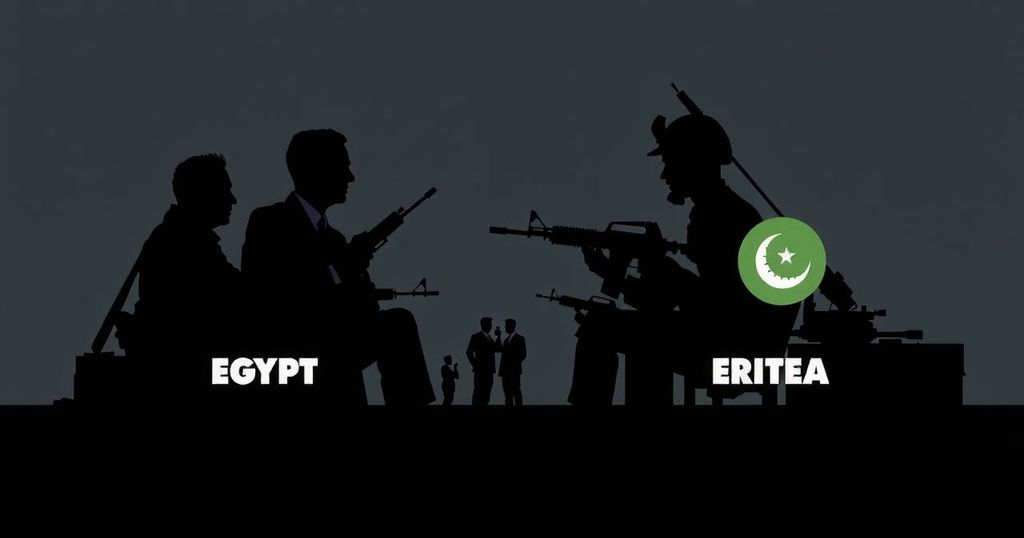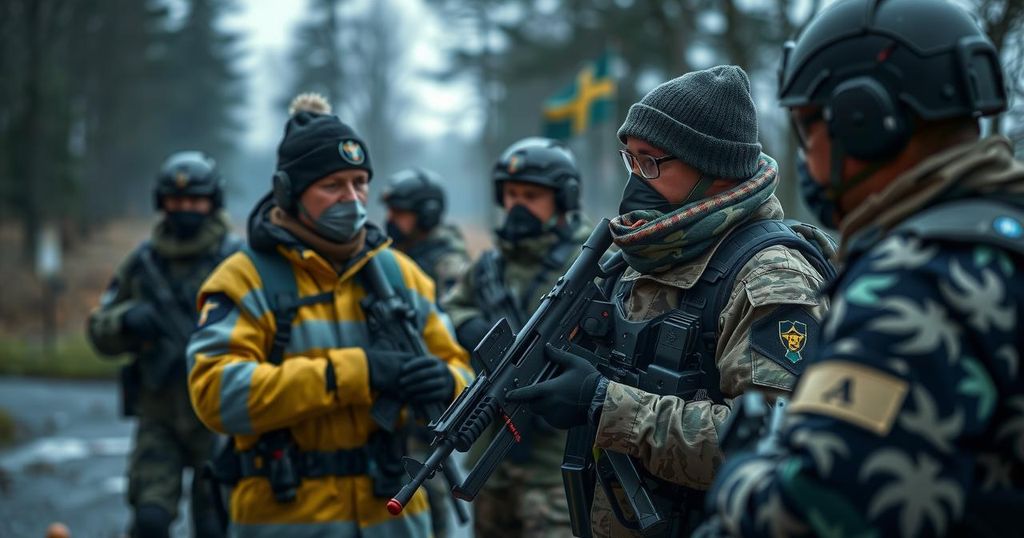Egypt and Eritrea Pursue Military Cooperation Amid Regional Instability
Summary
Egypt and Eritrea are negotiating a military cooperation agreement aimed at enhancing their ties amidst regional tensions, particularly regarding security in the Red Sea and conflicts involving Ethiopia. These discussions coincide with Egypt’s diplomatic efforts to mitigate unrest in the Horn of Africa and reinforce its strategic interests in the region.
Recent reports indicate that Egypt and Eritrea are in discussions to establish a military cooperation agreement, including intelligence sharing, to strengthen their existing ties. This potential accord aims to address significant regional challenges, particularly the security of Red Sea shipping routes which have been compromised due to assaults by Iranian-backed insurgents in Yemen. These attacks are reportedly motivated by solidarity with the Palestinian cause during the prolonged conflict between Israel and Hamas. Moreover, Egypt appears to be contemplating a mediatory role in resolving longstanding tensions between Eritrea and the Tigray rebels in Ethiopia, led by Prime Minister Abiy Ahmed, whose actions have been perceived as detrimental by Cairo, particularly regarding the contentious Grand Ethiopian Renaissance Dam. The discussions have occurred following a visit by Egyptian intelligence chief General Kamal Abbas, alongside Foreign Minister Badr Abdelatty, who recently engaged in talks with Eritrean President Isaias Afwerki. During this visit, they conveyed a message from President Abdel Fattah El Sisi which emphasized the necessity of reinforcing bilateral relations across multiple sectors. The leaders deliberated over the rising challenges faced in the Red Sea and the broader Horn of Africa, focusing on restoring maritime safety and fostering regional trade. The strategic partnership between Egypt and Eritrea is significant, given their shared geographical interests in the Red Sea which totals approximately 5,000 kilometers. With previous meetings between Mr. El Sisi and Mr. Afwerki occurring often, the relationship seems to be evolving toward a defense-oriented collaboration as a countermeasure against Ethiopian ascendancy in regional affairs. Egypt’s objectives encompass diminishing Ethiopian influence in the Horn of Africa while strengthening alliances with neighboring countries like Somalia, Djibouti, and Uganda, all of which have recently engaged in military cooperative agreements with Cairo. The geopolitical landscape remains precarious, particularly concerning Somalia’s burgeoning conflict with Ethiopia over territorial disputes with Somaliland, which threatens to escalate tensions significantly.
The current military negotiations between Egypt and Eritrea are emblematic of broader geopolitical dynamics within the Horn of Africa and the Red Sea region. Egypt has been particularly concerned about Ethiopia’s construction of the Grand Ethiopian Renaissance Dam, which has profound implications for Nile water sharing, a critical resource for Egypt. The ongoing conflicts in Yemen and Ethiopia compound security issues, prompting Egypt to seek stronger alliances with Eritrea and other nearby nations. With Eritrea strategically positioned near the Bab Al Mandeb strait, such alliances may provide Egypt with added leverage in its confrontations with Ethiopia, thereby enhancing its regional influence. There are historical tensions between Eritrea and Ethiopia, and the complexities of these relationships are further complicated by the involvement of various insurgent groups and the increasing presence of global powers seeking to establish themselves in this vital area.
In summary, the exploration of a military cooperation agreement between Egypt and Eritrea is a clear strategy for both nations to bolster security and establish a united front against perceived threats, particularly from Ethiopia. As these discussions unfold, they will likely reshape the geopolitical landscape of the Horn of Africa, reinforcing alliances that could lead to significant shifts in regional power dynamics. The ramifications of such alliances on national and international security will warrant close observation.
Original Source: www.thenationalnews.com








Post Comment